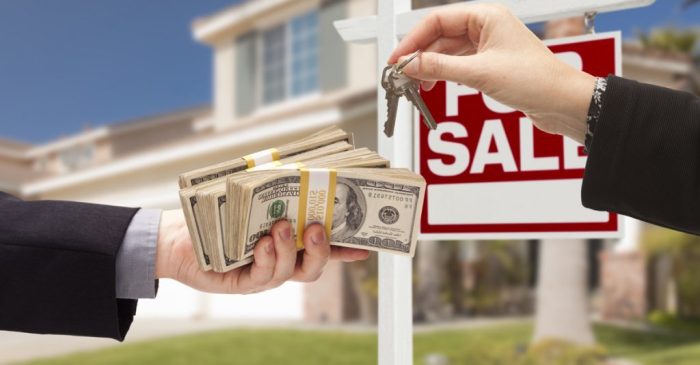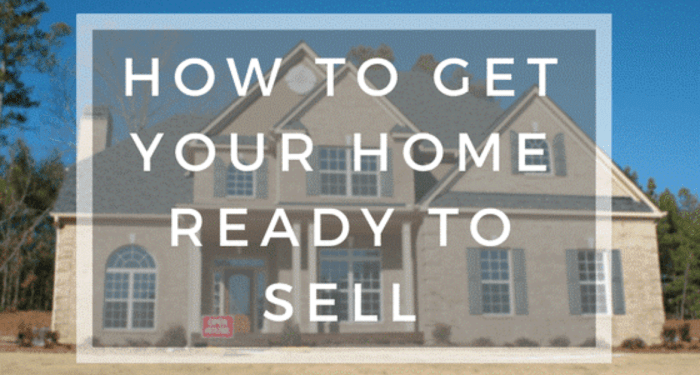In the realm of real estate, the urgency to sell my house fast can be a daunting task. From decluttering to pricing competitively, this guide dives deep into the strategies and tips needed to expedite the selling process. Get ready to uncover the secrets to a swift sale!
How to Prepare Your House for a Quick Sale

When selling your house quickly, it is crucial to make sure it is in the best possible condition to attract potential buyers. Here are some essential steps to prepare your house for a quick sale:
Declutter and Clean the House
Before listing your house, decluttering and deep cleaning are essential tasks. Remove personal items, excess furniture, and clutter to make the space appear larger and more inviting. A clean and tidy house will leave a positive impression on potential buyers.
Make Necessary Repairs and Upgrades
Address any issues such as leaky faucets, chipped paint, or broken fixtures. Making necessary repairs and upgrades can significantly increase the value of your home and make it more appealing to buyers. Consider minor upgrades like fresh paint, new light fixtures, or updated hardware to give your house a modern look.
Enhance Curb Appeal
The exterior of your house is the first thing potential buyers will see, so it's important to make a good first impression. Enhance your curb appeal by mowing the lawn, trimming bushes, planting flowers, and repainting the front door. A well-maintained exterior will attract more buyers and increase the chances of a quick sale.
Marketing Strategies to Sell Your House Fast

In today's competitive real estate market, effective marketing strategies can make all the difference when it comes to selling your house quickly. Utilizing online listings and social media promotions, hiring a real estate agent, hosting open houses, and staging the property are all key elements in attracting potential buyers and closing the deal swiftly.
Effectiveness of Online Listings and Social Media Promotions
Online listings on real estate websites like Zillow, Realtor.com, and Redfin can significantly increase your property's visibility to a wide audience of potential buyers. Social media platforms such as Facebook, Instagram, and Twitter provide additional avenues for promoting your listing and reaching out to interested buyers.
By leveraging the power of online and social media marketing, you can attract more attention to your property and increase the chances of a quick sale.
Hiring a Real Estate Agent vs. Selling Independently
While some homeowners opt to sell their property independently to save on agent commissions, hiring a real estate agent can offer several advantages. A professional agent brings expertise in pricing, marketing, negotiating, and closing deals, which can help expedite the selling process.
Agents also have access to a network of potential buyers and can provide valuable guidance throughout the entire transaction. Ultimately, working with a real estate agent can streamline the selling process and increase the likelihood of a fast sale.
Benefits of Hosting Open Houses and Staging the Property
Hosting open houses allows potential buyers to tour the property in person and envision themselves living in the space. This personal connection can lead to quicker decisions and offers. Additionally, staging the property by decluttering, depersonalizing, and enhancing its visual appeal can make a significant impact on buyers' first impressions.
A well-staged home not only photographs better for online listings but also creates a welcoming atmosphere that can attract more buyers and facilitate a faster sale.
Pricing Your House Competitively
When it comes to selling your house quickly, pricing it competitively is crucial. Setting the right price can attract more potential buyers and increase the chances of a quick sale. On the other hand, pricing your house too high or too low can deter buyers and lead to a prolonged selling process.
Conducting a Market Analysis
Before pricing your house, it's essential to conduct a thorough market analysis. This involves researching the prices of similar properties in your area that have recently sold or are currently on the market. Look at factors such as the size of the property, its condition, location, and any unique features that may affect its value.
By comparing your house to others in the market, you can determine the optimal price range that will attract buyers.
- Utilize online real estate platforms to gather information on recent sales and listings in your neighborhood.
- Consider hiring a professional appraiser to provide an accurate valuation of your property.
- Take into account any upgrades or renovations you have made to the house that could increase its value.
Impact of Overpricing or Underpricing
Overpricing your house can turn off potential buyers who may consider it out of their budget range. This can lead to your property sitting on the market for an extended period, causing it to become stale and less desirable. On the other hand, underpricing your house may attract quick offers, but you could end up selling for less than its actual value.
- Overpricing can result in having to make multiple price reductions, which can signal to buyers that there may be issues with the property.
- Underpricing may lead to a bidding war, but you risk leaving money on the table and not maximizing your profit.
- Properly pricing your house can generate interest from qualified buyers and lead to a faster sale at a fair market value.
Negotiating Offers and Closing the Sale

When it comes to negotiating offers and closing the sale of your house, there are some key strategies to keep in mind. By effectively handling negotiations and the closing process, you can ensure a smooth and successful transaction.
Handling Negotiations with Potential Buyers
- Be open to offers: Consider all offers that come in, even if they are lower than your asking price. Negotiation is a key part of the selling process.
- Know your bottom line: Determine the lowest price you are willing to accept and be prepared to stick to it during negotiations.
- Highlight the value: Showcase the unique features and selling points of your home to justify your asking price and negotiate from a position of strength.
- Stay calm and focused: Emotions can run high during negotiations, so it's important to remain calm, rational, and focused on reaching a mutually beneficial agreement.
Accepting Offers and Closing the Sale
- Review offers carefully: Carefully review all offers, including the terms and conditions, to ensure they align with your expectations and requirements.
- Counteroffer when necessary: If an offer doesn't quite meet your needs, consider counteroffering with revised terms to bridge the gap and keep the negotiation process moving forward.
- Handle inspections and appraisals: Be prepared for potential inspections and appraisals by ensuring your house is in good condition and accurately priced. Address any issues that may arise promptly.
- Complete legal paperwork: Work closely with your real estate agent or attorney to ensure all legal paperwork is completed accurately and in a timely manner to facilitate a smooth closing process.
Final Conclusion
As we conclude this journey on how to sell your house quickly, remember that with the right approach and knowledge, a fast sale is within reach. Armed with the tools and insights from this guide, you are well-equipped to navigate the real estate market with confidence.
Good luck with your speedy sale!
Common Queries
How can I increase the curb appeal of my house?
To enhance curb appeal, consider repainting the front door, maintaining the lawn, and adding potted plants or flowers.
Is it better to hire a real estate agent or sell my house independently?
The decision depends on your comfort level with the selling process. A real estate agent can provide expertise and guidance, but selling independently can save on commission fees.
What impact does overpricing or underpricing have on selling my house fast?
Overpricing can deter potential buyers, leading to a prolonged selling process. Underpricing may attract quick offers but result in financial loss.









